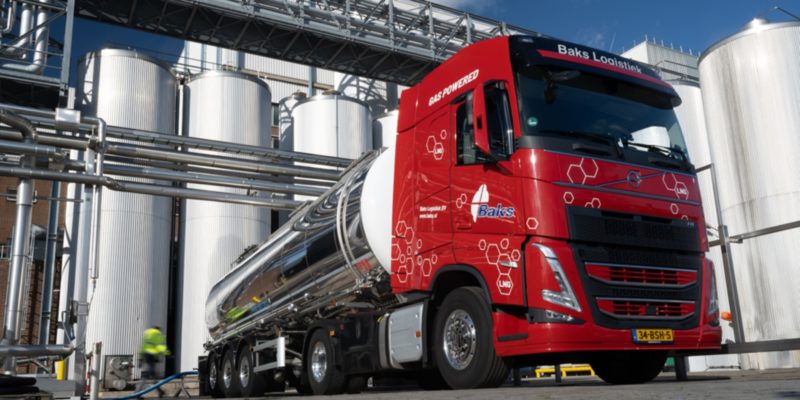Focus on sustainable transport
A focus on sustainability is crucial to improve supply chains. At Baks Logistics, we feel it is essential to find ways to improve the sustainability of our transport in order to reduce our carbon footprint. To achieve these improvements, a solid CO2 reporting tool is crucial to gain insights where optimizations can be made. Therefore, we are proud to announce that, together with UC Group and Visma Connect, we have developed a tool to measure and report our CO2 emissions in accordance with European Standards. Our sustainability manager Emmelie Prins recently shared her findings on sustainability management and the development of this CO2 tool with TLN, the Dutch national organization for Transport and Logistics.
————————————————————————————————————————————————————-

CO2 reporting
“We perceive a focus on how to create a more sustainable supply chain and thereby reducing our carbon footprint as essential in doing business nowadays,” Emmelie Prins, sustainability manager of Baks Logistiek says. “On the other hand, we are pleased that more and more clients are interested to receive CO2 reports from us as well.”
European standards
Since the beginning of 2022, Baks has started to cooperate with Visma Connect and UC Group in the development of a CO2 tool, to measure the current CO2 emissions and determine reduction possibilities. “We have started with several brainstorm sessions to explore what we actually want to report,” Prins says. “We have now been working with the tool itself for about a month, which enables us to calculate the CO2 emissions per trip. Before, we used to estimate these emissions in Excel on the basis of standard factors. It allows you to estimate your emissions, but these will never be in line with the European standards. We have incorporated the latter in the new tool, to ensure that we can provide our clients with reliable information.”
“The reporting is a first step to create savings. However, realizing reductions takes time,” says Prins. By this, she does not refer to the economical driving training for truck drivers that Baks organizes, or the use of LNG or renewable fuels. Rather, to create improvements throughout the supply chain involves a plurality of parties. But, this does not mean that improvements are impossible. It just takes time and consultation with customers. “In our customer conversations we therefore talk about the value and benefits of CO2 reduction. We discuss, for example, possibilities to improve the payload, the reduction of CO2 through alternative fuels, or the possibilities to reduce CO2 emissions by introducing new concepts. Overall, we see that we are making better use of our capacity.”
The entire article can also be read at https://www.tln.nl/nieuws/we-benutten-steeds-beter-onze-capaciteit/ (Dutch only).